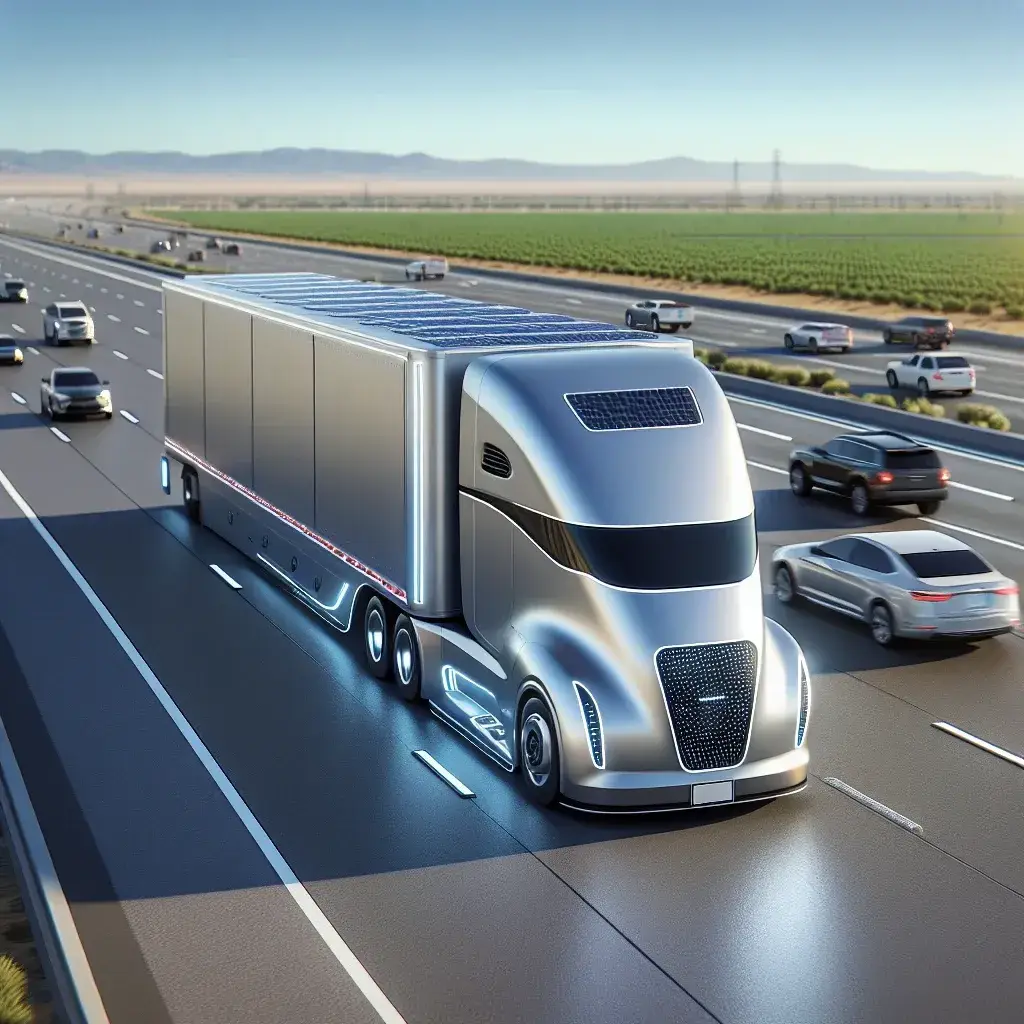Uber Piloting Autonomous Freight Trucking Routes Across U.S. Highways
Introduction
As technology continues to advance at an unprecedented pace, the logistics industry is witnessing a significant transformation. One of the most notable developments is Uber’s initiative to pilot autonomous freight trucking routes across U.S. highways. This ambitious project not only aims to streamline freight transportation but also seeks to enhance safety and reduce operational costs. In this article, we will delve into the intricacies of Uber’s autonomous freight program, explore its historical context, and discuss its potential impact on the future of logistics.
The Rise of Autonomous Freight Transportation
Autonomous vehicles have been a hot topic in recent years, with companies like Uber leading the charge in exploring their applications within the freight sector. The concept of self-driving trucks is not new; however, the technology has evolved significantly. With advancements in artificial intelligence, machine learning, and sensor technology, the vision of fully autonomous freight trucks is becoming a reality.
Historical Context
The journey towards autonomous freight trucking began over a decade ago, with early experiments focused on driver assistance technologies. In 2016, Uber acquired the self-driving truck startup, Otto, which marked a pivotal moment in its pursuit of autonomy. Since then, Uber has invested heavily in research and development, resulting in the current pilot program.
Technological Advancements
Today’s autonomous trucks are equipped with sophisticated technologies that include:
- LiDAR Sensors: These sensors create high-resolution 3D maps of the truck’s surroundings.
- AI Algorithms: Machine learning algorithms analyze data from sensors to make real-time driving decisions.
- GPS Technology: Accurate mapping and navigation systems help trucks stay on course.
- Vehicle-to-Everything (V2X) Communication: This technology allows vehicles to communicate with each other and infrastructure for enhanced safety.
Uber’s Pilot Program
Uber’s pilot program for autonomous freight trucking routes is being tested on major U.S. highways, focusing on a select number of key routes ideal for autonomous driving. This pilot aims to evaluate the effectiveness of the technology in real-world conditions, ensuring that it can handle the complexities of highway driving.
Initial Testing Phases
The initial phases of testing involve a combination of autonomous and human-driven vehicles. During these trials, the autonomous trucks are monitored closely to gather data on their performance, safety, and efficiency. This approach allows Uber to fine-tune its algorithms and improve the overall system before full deployment.
Potential Benefits of Autonomous Freight Trucks
The benefits of implementing autonomous freight trucking routes are substantial and can revolutionize the entire logistics industry:
- Increased Efficiency: Autonomous trucks can operate around the clock without the need for rest breaks, leading to faster delivery times.
- Cost Reduction: Reducing labor costs associated with long-haul trucking can significantly lower operational expenses.
- Enhanced Safety: With advanced sensor technology and real-time decision-making, autonomous trucks have the potential to reduce accidents caused by human error.
- Environmental Impact: Autonomous trucks can optimize routes and conserve fuel, contributing to lower emissions.
Challenges and Concerns
Despite the potential benefits, there are several challenges and concerns associated with the deployment of autonomous freight trucks:
- Regulatory Hurdles: Navigating the regulatory landscape can be complex, with different states having varying laws regarding autonomous vehicles.
- Public Perception: Gaining public trust in self-driving technology is critical, as many people remain apprehensive about sharing the road with autonomous vehicles.
- Job Displacement: The introduction of autonomous trucks raises concerns about job losses in the trucking industry.
Future Predictions
Looking ahead, the future of autonomous freight trucking is promising. As Uber continues to refine its technology and gather data from its pilot programs, we can expect to see:
- Widespread Adoption: With successful pilot tests, more companies may incorporate autonomous trucks into their fleets.
- Improved Regulations: As technology evolves, so too will regulations, paving the way for a safer integration of autonomous vehicles into the transportation network.
- Cultural Shift: A gradual acceptance of autonomous technology in everyday life, leading to changes in how we perceive transportation and logistics.
Expert Insights
Industry experts believe that embracing autonomous technology is crucial for staying competitive in the logistics space. According to Dr. Emily Johnson, a leading researcher in automated transportation, “The future of freight transportation will be defined by the integration of technology and human expertise. Autonomous trucks are just one piece of the puzzle.”
Conclusion
Uber’s pilot program for autonomous freight trucking routes across U.S. highways signifies a monumental shift in the logistics industry. While there are challenges to overcome, the potential benefits are substantial. As technology continues to advance, the landscape of freight transportation will undoubtedly transform, ushering in a new era of efficiency, safety, and sustainability. The road ahead may be complex, but the promise of autonomous trucking is as clear as ever.

